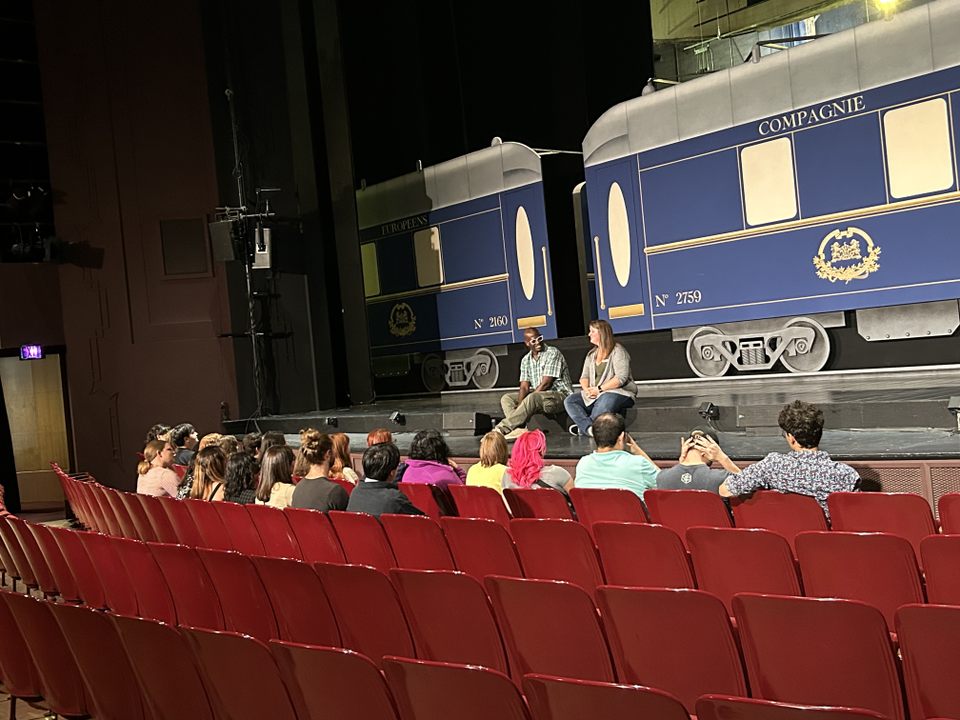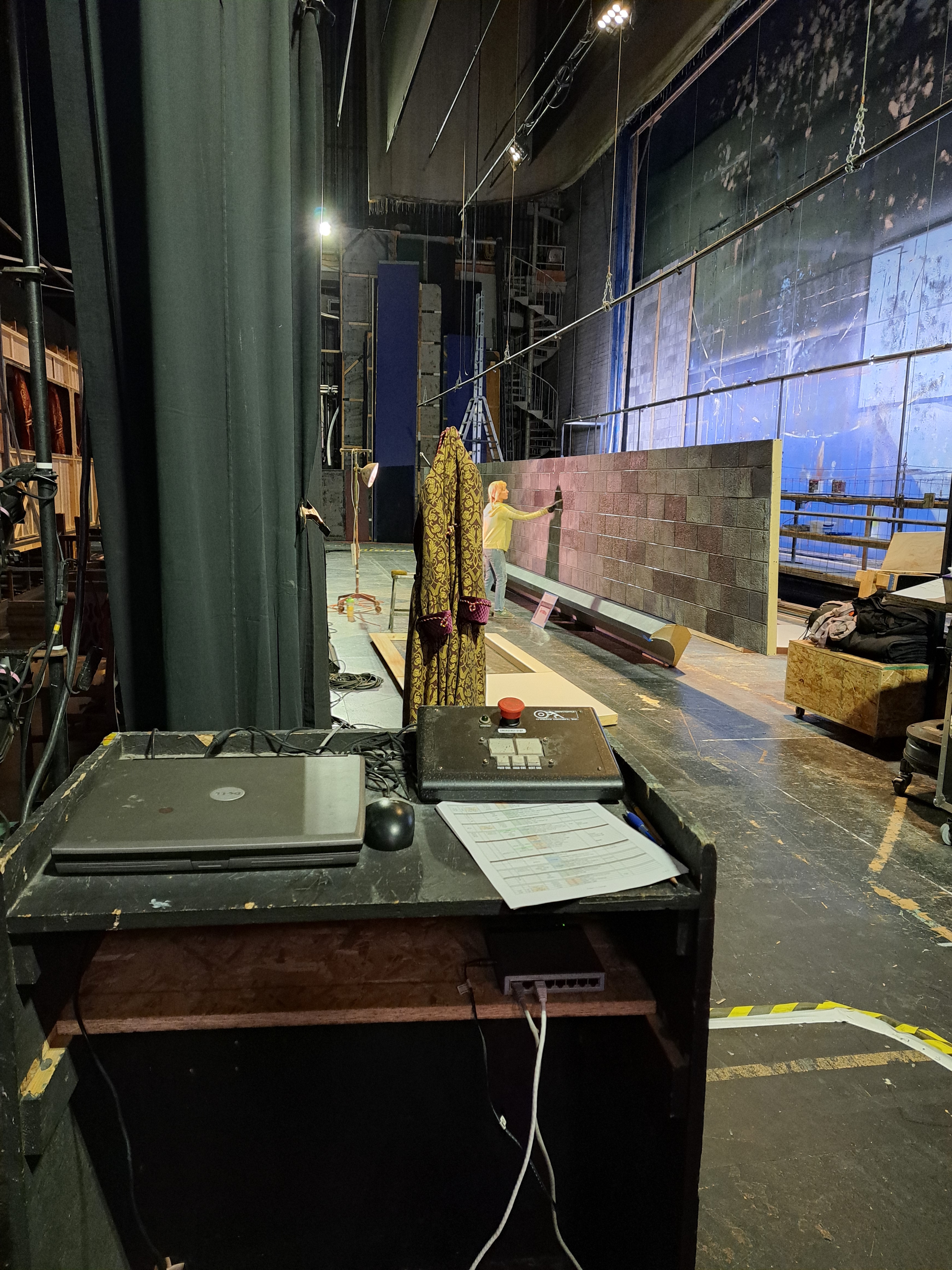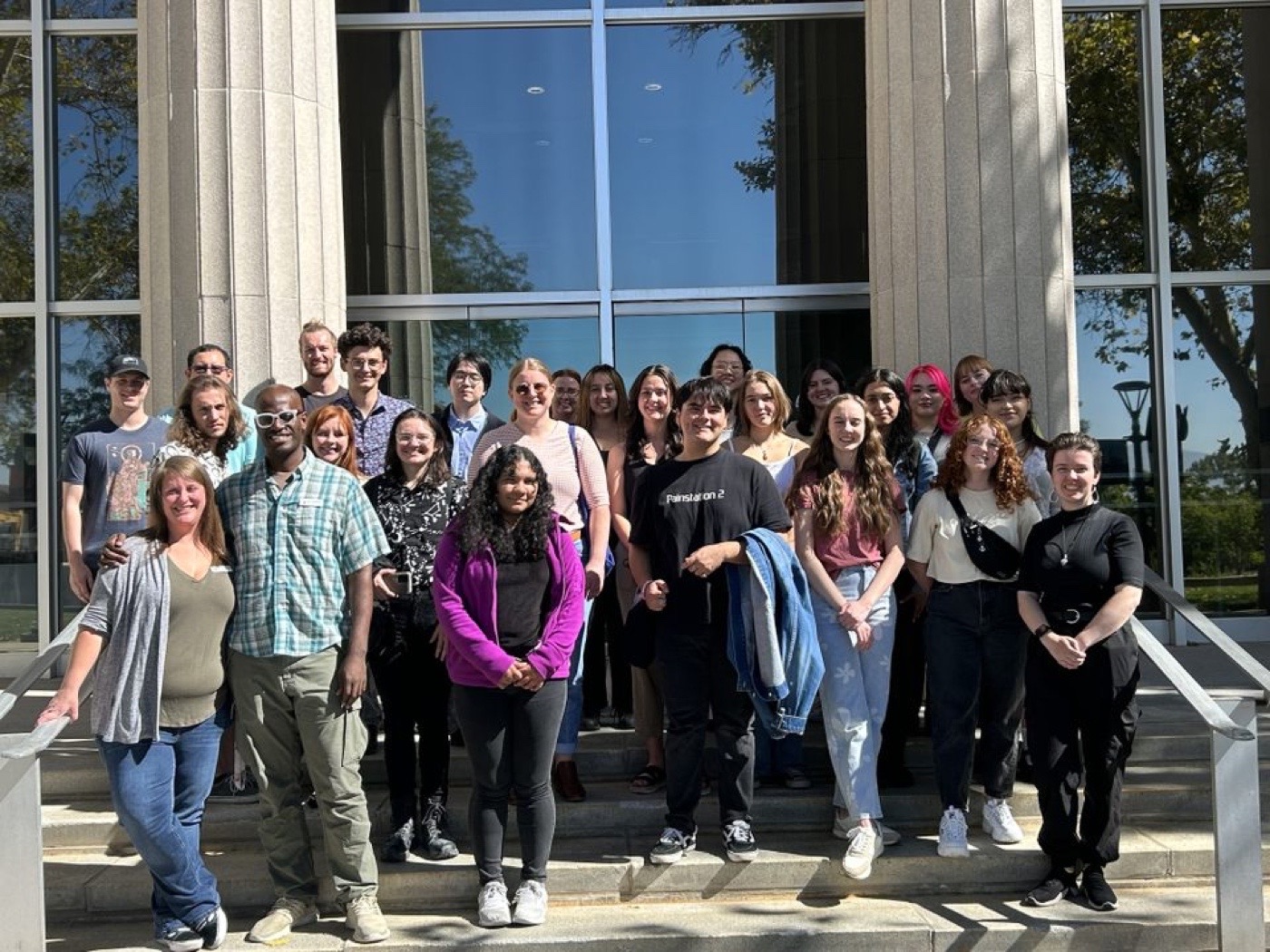By Mors Smith
Hello CFA students! This October, ArtsForce had the opportunity to visit Pioneer Theatre Company for our first Career Trek this year.
What are Career Treks, you ask? Career Treks are all about going to a fine arts organization within Utah to see the many career possibilities available in the arts.
Pioneer Theatre Company (PTC for short) first opened in 1962 and was dubbed the “State Theatre of Utah”. Since then, PTC has grown to be known for Broadway-quality performances, and is now one of the premiere non-profit theatres in Utah. They are located on the University of Utah campus and serve as a cultural hub and educational space for students and community alike.
At the start of the trek we gathered inside the theatre where we were greeted by Associate Artistic & Outreach Director, Eric Jackson and Company & Operations Manager, Lisa Edwards. They gave us an overview of their roles, and how they came to find themselves at PTC. After becoming familiar with the responsibilities of these administrative positions, we split into groups to explore the theatre and learn about other career paths.
Walking through the lobby, we learned about a common misconception about theatre. Many think ticket sales pay the bills, but sales actually account for very little profit. PTC, like many theatres, raise money from donors to help fund the brunt of the costs of running a theatre and producing shows. We stopped by some of the administrative offices housing the development, graphic design, and marketing teams. Each year, these positions allow the theatre to host its production season.
We got a special backstage peak at “Murder on the Orient Express,” PTC’s first production this season. We could see the inner workings of the set, and behind that, the set for the next show, “The Rocky Horror Show” being painted. On either side of the stage were places for woodworking, welding, and props. Descending into the lower levels of PTC directly under the stage, a variety of rooms are connected by a tunnel that facilitates efficient travel to both sides. 
One room of note was the trap room that is utilized for when performers need to fall under the stage for dramatic effect. Sometimes this room is used as overflow for performing music ensembles. So much infrastructure is required to facilitate a performance, and while it might not be visible on stage, this work can make or break a performance. When a performance is not in session, where do the performers go?
From beneath the stage, we visited the green room and dressing rooms: both spaces for performers to relax and prepare. PTC also has a variety of rehearsal spaces: one small space meant for rehearsing parts of scenes, and a larger rehearsal space that can represent the whole stage. Alongside, there is a dedicated work space where PTC’s tailors were busy at work on costumes. We briefly looked through their costume storage and discussed the process of fitting the actors properly for clothing and wigs. We saw a whole wall of wigs used for the current show!
Trevor Long, PTC’s Production Manager, joined us for the Q&A session with Eric Jackson and Lisa Edwards. The three shared advice for those who would be interested in a career in theatre, stressing the importance of having good communication skills, and leaving a good impression. They emphasized that many art skills can be transferable into theatre and many jobs. Lastly, they encouraged us not to be afraid to start in entry-level positions –– voice your interests and opportunities will come.
In fact, internships and volunteer opportunities are available at PTC if you are interested!
Email Eric Jackson at
Make sure to join ArtsForce for our next Career Trek November 3rd, to BW Productions.
ArtsForce Takeaways
1. If there is a direction you want in your career, walk towards it
2. Never stop learning, learning is important to the arts
3. Networking with those in your industry is very important to getting a job

